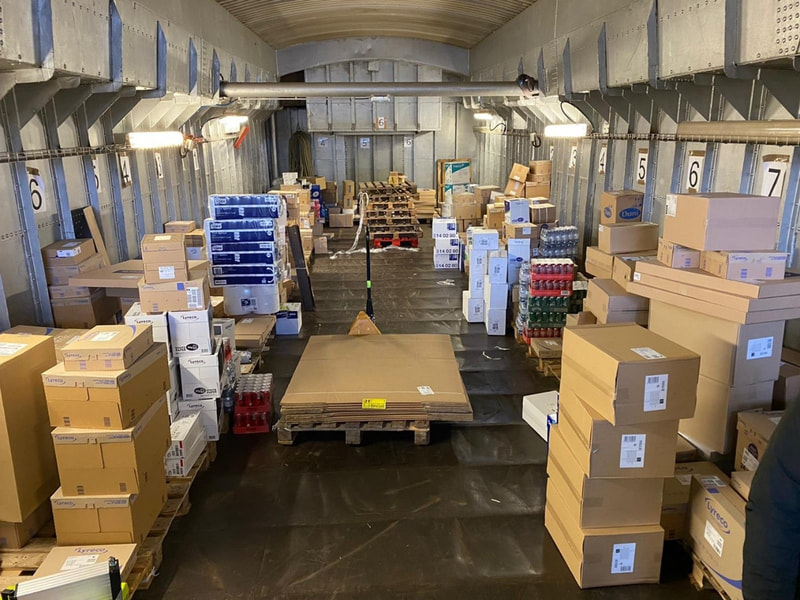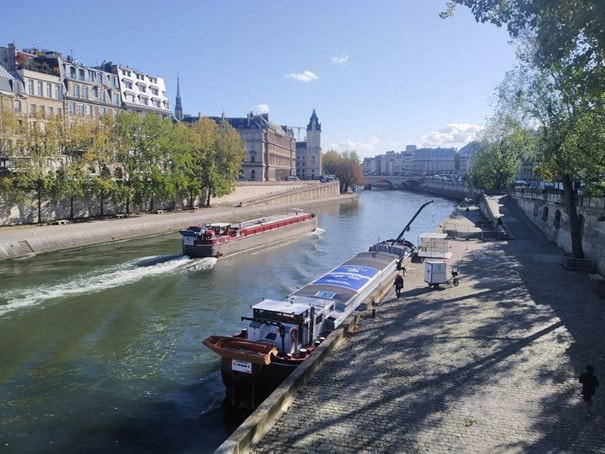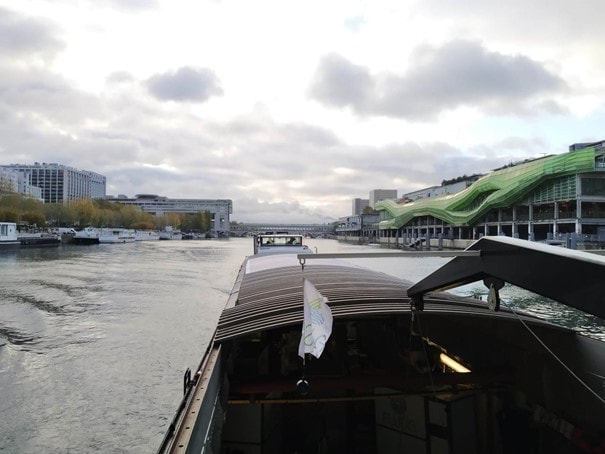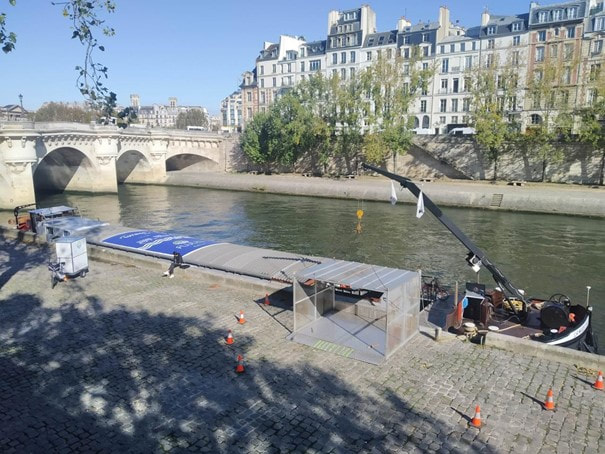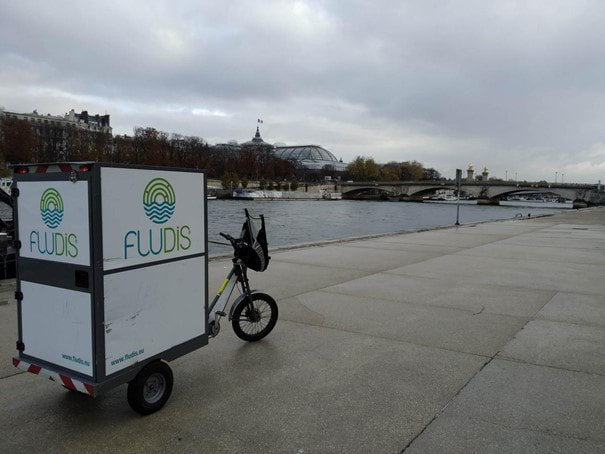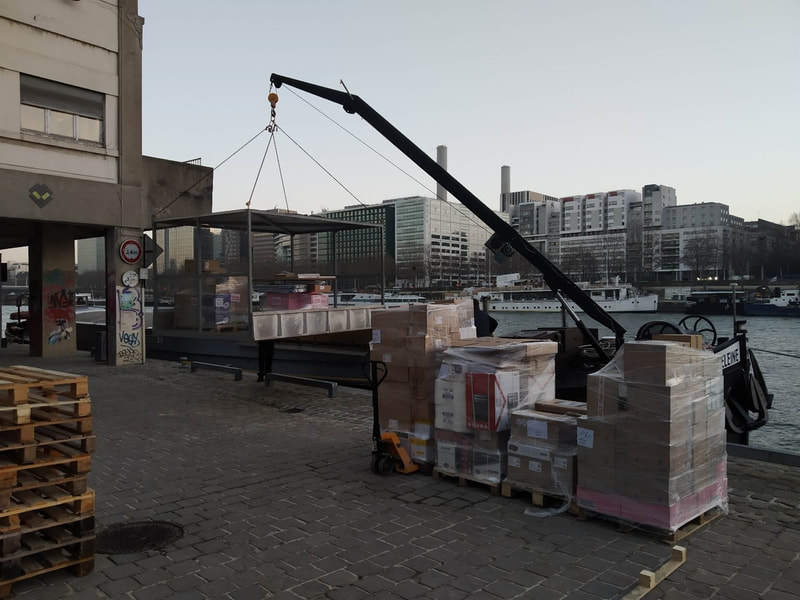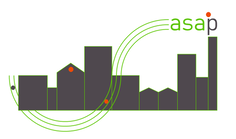Paris | River Logistics
Description
FLUDIS operates its urban logistic activities in Paris using a self-loading / unloading boat dedicated to last mile road preparation, as well as electrically assisted cargo bikes. Its river and cyclologistic activities and tools make it possible to envisage experiments and indicator measurements thanks to its daily application of modal shift.
Currently, FLUDIS operates a boat every day in Paris, allowing its teams to approach delivery points in the heart of the city, where the restrictions and delivery complications are the most numerous. The delivery activity carried out by the boat and cargo bike combination makes it possible to replace 4 diesel utility vehicles (LCVs) today.
The ambition of the project, dedicated to a single economic player, is to replace up to ten diesel LCVs every day. Note that one cargo bike delivery driver replaces one LCV delivery driver, because productivity level is maintained. This solution has been operational since February 2021, but the environmental and societal impact measurement work has not yet been completed. Access to data is facilitated by the fact that FLUDIS performs the service itself, with an employed team. The objective of the experiment is to precisely know the environmental impact of the organizational solution put in place. The following indicators will be measured in particular:
Currently, FLUDIS operates a boat every day in Paris, allowing its teams to approach delivery points in the heart of the city, where the restrictions and delivery complications are the most numerous. The delivery activity carried out by the boat and cargo bike combination makes it possible to replace 4 diesel utility vehicles (LCVs) today.
The ambition of the project, dedicated to a single economic player, is to replace up to ten diesel LCVs every day. Note that one cargo bike delivery driver replaces one LCV delivery driver, because productivity level is maintained. This solution has been operational since February 2021, but the environmental and societal impact measurement work has not yet been completed. Access to data is facilitated by the fact that FLUDIS performs the service itself, with an employed team. The objective of the experiment is to precisely know the environmental impact of the organizational solution put in place. The following indicators will be measured in particular:
- CO2 emissions
- Particle emissions
- Litres of fuel saved
- Kilometres avoided
- Area occupied in public space saved
Innovation and Relevance
The FLUDIS project is innovative in the sense that it is a unique model. While other experiments are taking place, particularly in France, regarding last mile delivery by water and cargo bikes, the FLUDIS model stands out for three reasons:
- The FLUDIS model is the only one to offer preparation for last mile roads on board the boat, where cargo bikes and teams are also present.
- The FLUDIS model is the only one that does not need dockside equipment to load / unload.
- The FLUDIS model is the only one to be active every day, in particular in Paris.
Relation to other urban Logistics Projects
Currently no information available.
Plans for Future Development
The model will evolve in the coming months. Indeed, activity will gain momentum, and additional flows will be handled daily by this river / cargo bike link. Today, 4 to 5 delivery people perform the service for the FLUDIS client, but in the medium term, the objective is to reach an operational team of almost 10 delivery employees.
The evolution will result in a change of boat, larger and more suited to the processing of flows. In addition, this new boat will have a different engine (electric), which will further improve the environmental footprint of the solution, and therefore improve the monitoring indicators. This new boat should be put in place in the first quarter of 2022. As indicated above, another river solution for the massive entrance of goods to city is under development. This project represents another model, another approach, but may also be subject to an environmental assessment.
The evolution will result in a change of boat, larger and more suited to the processing of flows. In addition, this new boat will have a different engine (electric), which will further improve the environmental footprint of the solution, and therefore improve the monitoring indicators. This new boat should be put in place in the first quarter of 2022. As indicated above, another river solution for the massive entrance of goods to city is under development. This project represents another model, another approach, but may also be subject to an environmental assessment.
Impressions
Fotocredits: © Arnaud Montand / FLUDIS and Kevin Janin / FLUDIS
